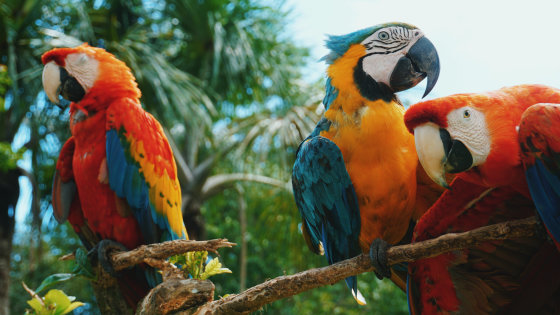Neoplasms are born and diversified in 'barren places' such as deserts and mountain peaks instead of the Amazon

The Amazon rainforest is considered a treasure trove of biodiversity, but new research shows that 'cold spots' with fewer organisms are better than 'hot spots' with diverse organisms like the Amazon. In fact, it was announced that it would promote the evolution and diversification of newborns.
The evolution of a tropical biodiversity hotspot | Science
'Cold spots,' not hotspots, key to rapid biodiversification | NSF --National Science Foundation
https://www.nsf.gov/discoveries/disc_summ.jsp?cntn_id=301810
According to scientists at Louisiana State University who conducted the study, the Amazon rainforest has fewer new species than previously thought. In places where organisms themselves are unlikely to exist, such as deserts and mountain peaks, there is a paradox that great potential for diversification remains, and from this paradox, 'cold spots produce new species faster than hot spots.' The researcher led.

Researchers surveyed major bird groups in the rainforest using tissue samples cryopreserved at the Louisiana State University Museum of Natural Sciences. The collection contains tissue samples of 1287 bird species from 24 countries around the world.
After analyzing tissue DNA, researchers have succeeded in mapping the genetic relationships of major birds in the rainforest called the
Researchers say the analysis found that extreme cold spots, such as dry and unstable, leave plenty of room for new species to evolve. On the other hand, biodiversity in hotspots such as the Amazon rainforest is believed to be the result of species accumulation over time.

'Our research has shown that species can form rapidly in extreme places, but in moderate environments, species can accumulate and create diverse hotspots,' he said. Said ecologist Robb Brumfield.
In response to the research results, Brumfield called for conservation activities not only in the species-rich Amazon, but also in areas that are not diverse but contribute to the emergence of new species.
Related Posts:







